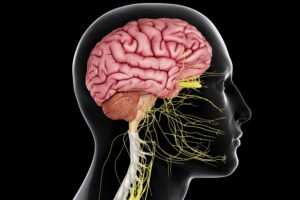Neuropsychology is a specialized branch of psychology that investigates the relationship between the brain and behavior. A neurological psychologist is a professional who specializes in the assessment, diagnosis, and treatment of individuals with brain injuries, diseases, or disorders that affect their cognitive, emotional, and behavioral functioning. In this article, we will explore the role and responsibilities of neurological psychologists, their education and training requirements, the assessment and treatment approaches they use, and the types of disorders and conditions they commonly work with.
Contents
- 1 Roles and Responsibilities of Neurological Psychologists
- 2 Education and Training- Neurological Psychologist
- 3 Reasons To Visit a Neurological Psychologist
- 4 Treatment Approaches Used By Neurological Psychologists
- 5 Sources To Find Neurological Psychologists
- 6 Tips To Keep In Mind While Finding Neurological Psychologists
- 7 Conclusion
Roles and Responsibilities of Neurological Psychologists

A neurological psychologist’s primary role is to evaluate and treat patients who have sustained brain injuries, have neurological disorders, or have experienced neurological damage due to illness or disease. They use their knowledge of the brain and nervous system to assess, diagnose, and treat patients with a variety of conditions, such as traumatic brain injury, stroke, Parkinson’s disease, dementia, and multiple sclerosis.
The responsibilities of a neurological psychologist can vary but typically include conducting assessments to evaluate cognitive, emotional, and behavioral functioning, developing treatment plans, providing psychotherapy, and working with other healthcare professionals to provide comprehensive care. They may also research to advance the understanding of the relationship between the brain and behavior and develop new treatment approaches.
Education and Training- Neurological Psychologist
To become a neurological psychologist, an individual must first earn a bachelor’s degree in psychology or a related field. They will then need to earn a graduate degree in psychology, such as a Master’s or Doctoral degree in Clinical Psychology or Neuropsychology. It is also common for individuals to complete a post-doctoral fellowship in Neuropsychology, which provides specialized training in the assessment and treatment of neurological disorders.
In addition to formal education and training, neurological psychologists must also obtain a license to practice in their state. Licensing requirements vary by state but typically involve passing a written and oral examination and completing a certain number of supervised clinical hours.
Reasons To Visit a Neurological Psychologist
There are many reasons why a person may want to visit a neurological psychologist. Here are some of the most common reasons why someone may seek the services of a neurological psychologist:
- Brain Injury: A person who has sustained a brain injury, such as a traumatic brain injury (TBI), may need to see a neurological psychologist to help them manage the emotional and cognitive symptoms associated with the injury.
- Stroke: A person who has experienced a stroke may need to see a neurological psychologist to help them manage the physical, emotional, and cognitive symptoms associated with the stroke.
- Neurodegenerative Disorders: A person who has a neurodegenerative disorder, such as Parkinson’s disease or Alzheimer’s disease, may need to see a neurological psychologist to help them manage the cognitive and emotional symptoms associated with the disorder.
- Multiple Sclerosis: A person who has multiple sclerosis may need to see a neurological psychologist to help them manage the physical, cognitive, and emotional symptoms associated with the disorder.
- Epilepsy: A person who has epilepsy may need to see a neurological psychologist to help them manage the emotional and cognitive symptoms associated with the disorder.
- Chronic Pain: A person who has chronic pain due to a neurological disorder may need to see a neurological psychologist to help them manage the emotional and cognitive symptoms associated with chronic pain.
- Anxiety and Depression: A person who has anxiety or depression related to a neurological disorder may need to see a neurological psychologist to help them manage their symptoms and improve their quality of life.
Treatment Approaches Used By Neurological Psychologists

Neurological psychologists use a variety of assessment and treatment approaches to help individuals with neurological disorders. These approaches are tailored to the individual’s specific needs and the nature of their condition. Here are some of the most common treatment approaches used by neurological psychologists:
- Cognitive-Behavioral Therapy (CBT): CBT is a type of psychotherapy that focuses on the relationship between a person’s thoughts, emotions, and behaviors. This approach can help individuals with neurological disorders cope with emotional and behavioral problems related to their condition. For example, individuals with traumatic brain injury (TBI) may experience depression or anxiety, and CBT can help them identify negative thought patterns and develop coping strategies.
- Rehabilitation: Rehabilitation involves working with a person to develop and implement a plan to regain lost skills or develop compensatory strategies for skills that cannot be regained. Rehabilitation can include physical therapy, occupational therapy, speech therapy, and other forms of therapy. For example, individuals with stroke may need physical therapy to regain movement in their limbs, while those with Parkinson’s disease may need occupational therapy to develop strategies for completing daily tasks.
- Medication Management: In some cases, medication may be used to manage symptoms associated with neurological disorders. A neurological psychologist can work with a person’s medical doctor to develop a medication management plan. For example, individuals with dementia may need medication to manage their symptoms, while those with multiple sclerosis may need medication to manage pain or muscle spasms.
- Supportive Therapy: Supportive therapy involves providing emotional support and encouragement to individuals with neurological disorders. This can be especially important for individuals who are coping with the emotional impact of their condition, such as depression or anxiety. Supportive therapy can be provided in individual or group settings.
- Family Therapy: Family therapy involves working with the individual and their family members to address the impact of the neurological disorder on the family system. This approach can help improve communication and relationships within the family and provide support for the individual with the neurological disorder.
Sources To Find Neurological Psychologists
Finding a neurological psychologist can be a challenge, but there are several resources available to help you locate one. Here are some sources to consider:
- Referral from a Healthcare Provider: Your primary care physician or neurologist may be able to provide a referral to a neurological psychologist who specializes in your specific condition.
- Online Directories: Several online directories list healthcare providers, including neurological psychologists. These directories can be searched by location, specialty, and other criteria. Examples of online directories include Mantracare, Therapymantra, and the American Psychological Association’s Psychologist Locator.
- Professional Organizations: Professional organizations, such as the International Neuropsychological Society and the National Academy of Neuropsychology, may have directories of members who specialize in neuropsychology.
- Insurance Company: If you have health insurance, your insurance company may have a list of in-network providers, including neurological psychologists, that you can choose from.
- Support Groups: Support groups for individuals with neurological disorders may be able to provide recommendations for neurological psychologists in your area.
Tips To Keep In Mind While Finding Neurological Psychologists

Finding the right neurological psychologist can be a challenging task. Here are some tips to keep in mind to help you find a qualified and experienced neurological psychologist:
- Look for a Licensed and Certified Provider: Make sure that the neurological psychologist you choose is licensed and certified to practice in your state. You can verify their credentials with your state’s licensing board or professional organization.
- Check Specializations: Not all neurological psychologists specialize in the same areas. Furthermore, Be sure to check that the provider you are considering has experience and training in working with your specific condition or concern.
- Read Reviews and Ratings: Online reviews and ratings can provide helpful insights into the experiences of other patients with a particular neurological psychologist. However, it is important to take these reviews with a grain of salt, as they may not always be accurate or representative.
- Consider Insurance Coverage: Check with your insurance provider to determine which neurological psychologists are in-network and covered by your insurance plan.
- Schedule a Consultation: Before committing to ongoing treatment, schedule a consultation with a neurological psychologist to discuss your concerns and ask any questions you may have. This will allow you to see if the provider is a good fit for you and your needs.
Conclusion
Neurological psychologists play an important role in the assessment and treatment of individuals with neurological disorders. They use a variety of assessment and treatment approaches to help individuals with neurological disorders improve their cognitive, emotional, and behavioral functioning.
In conclusion, finding the right neurological psychologist can take time and effort, but it is worth it to ensure that you receive the best possible care and support for your condition or concerns. Keep these tips in mind as you search for a qualified and experienced neurological psychologist.
For more information, please contact MantraCare. A psychologist is a professional who specializes in the study of human behavior and mental processes. If you have any queries regarding Online Therapist experienced therapists at MantraCare can help: Book a trial therapy session


